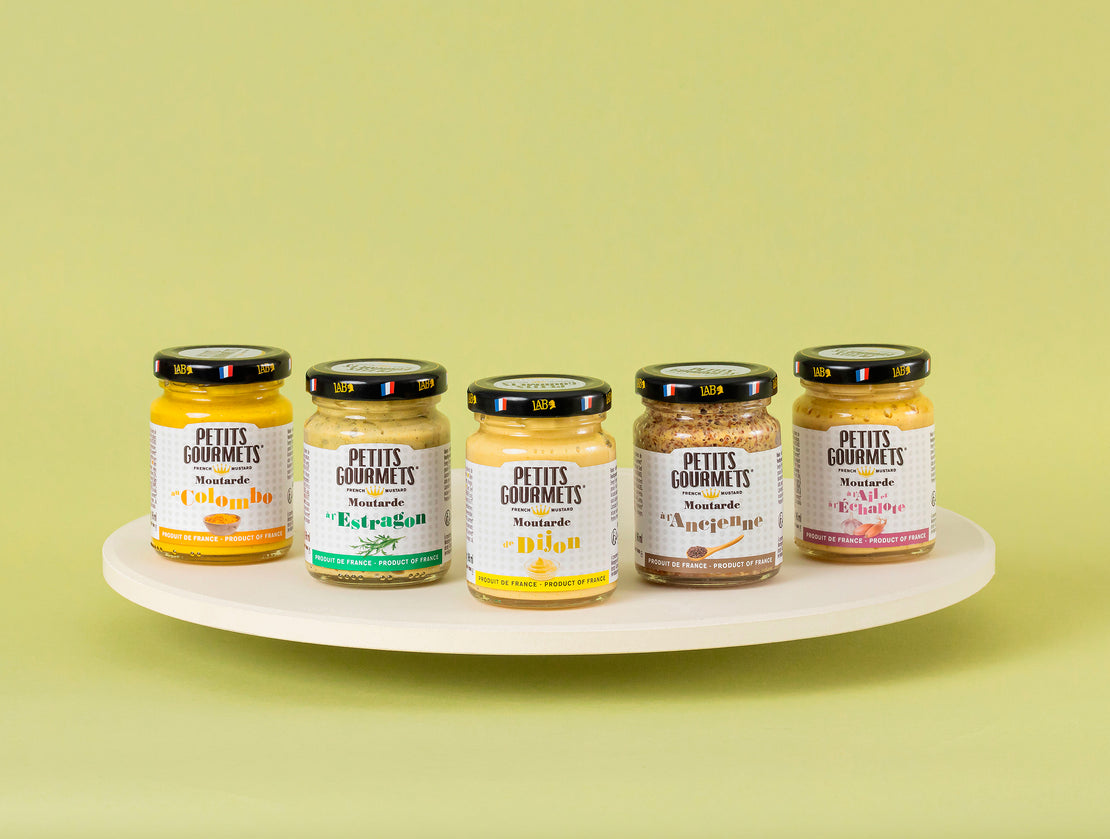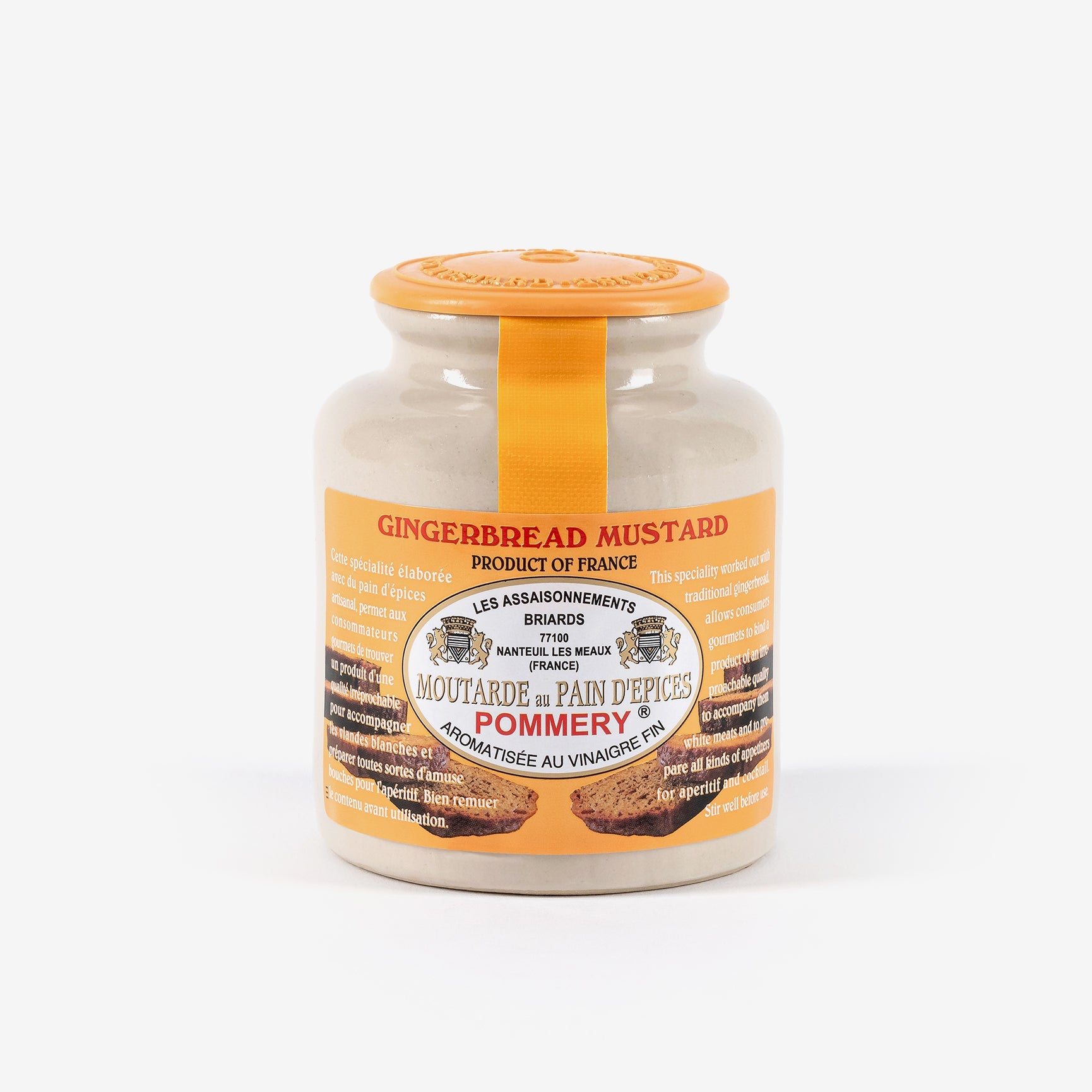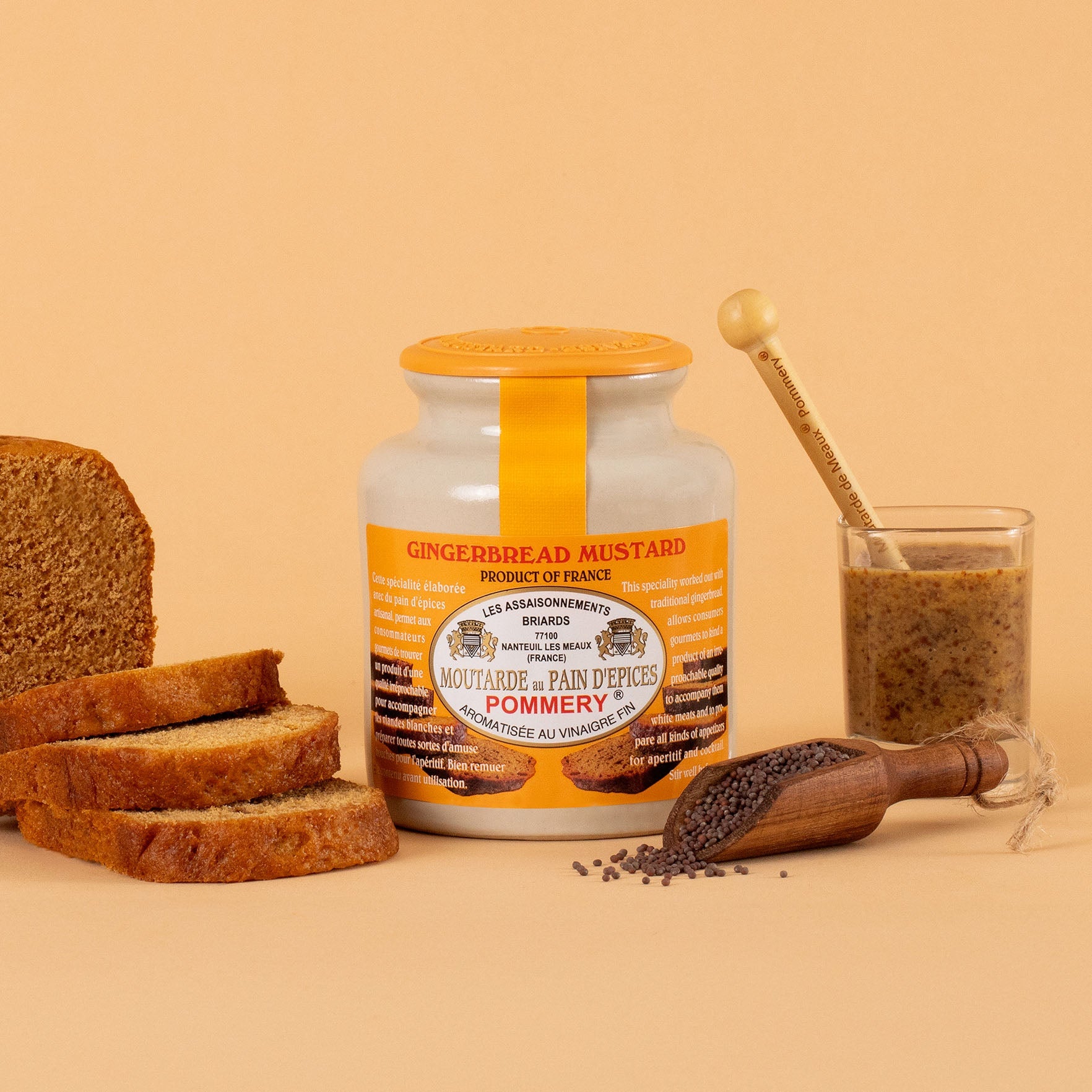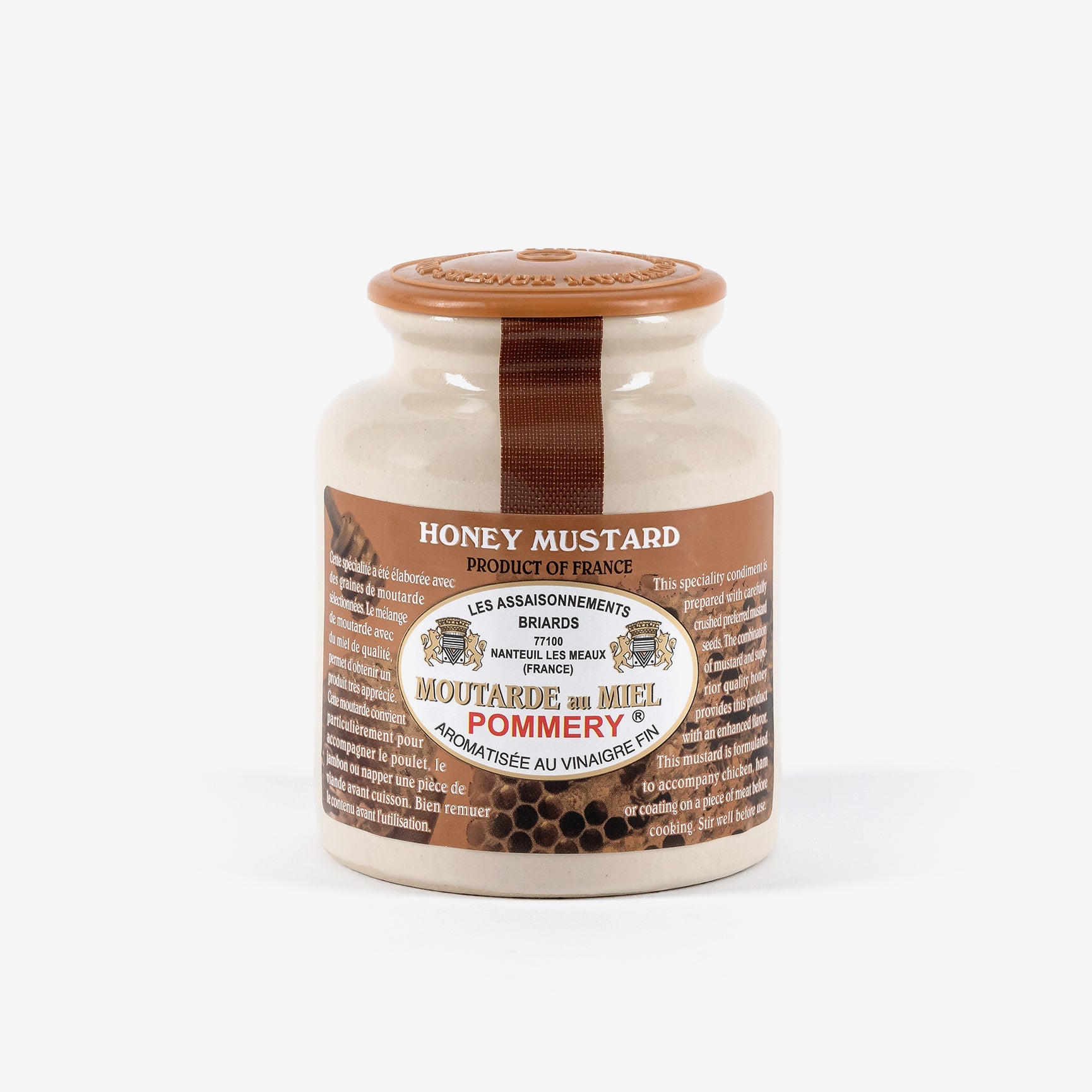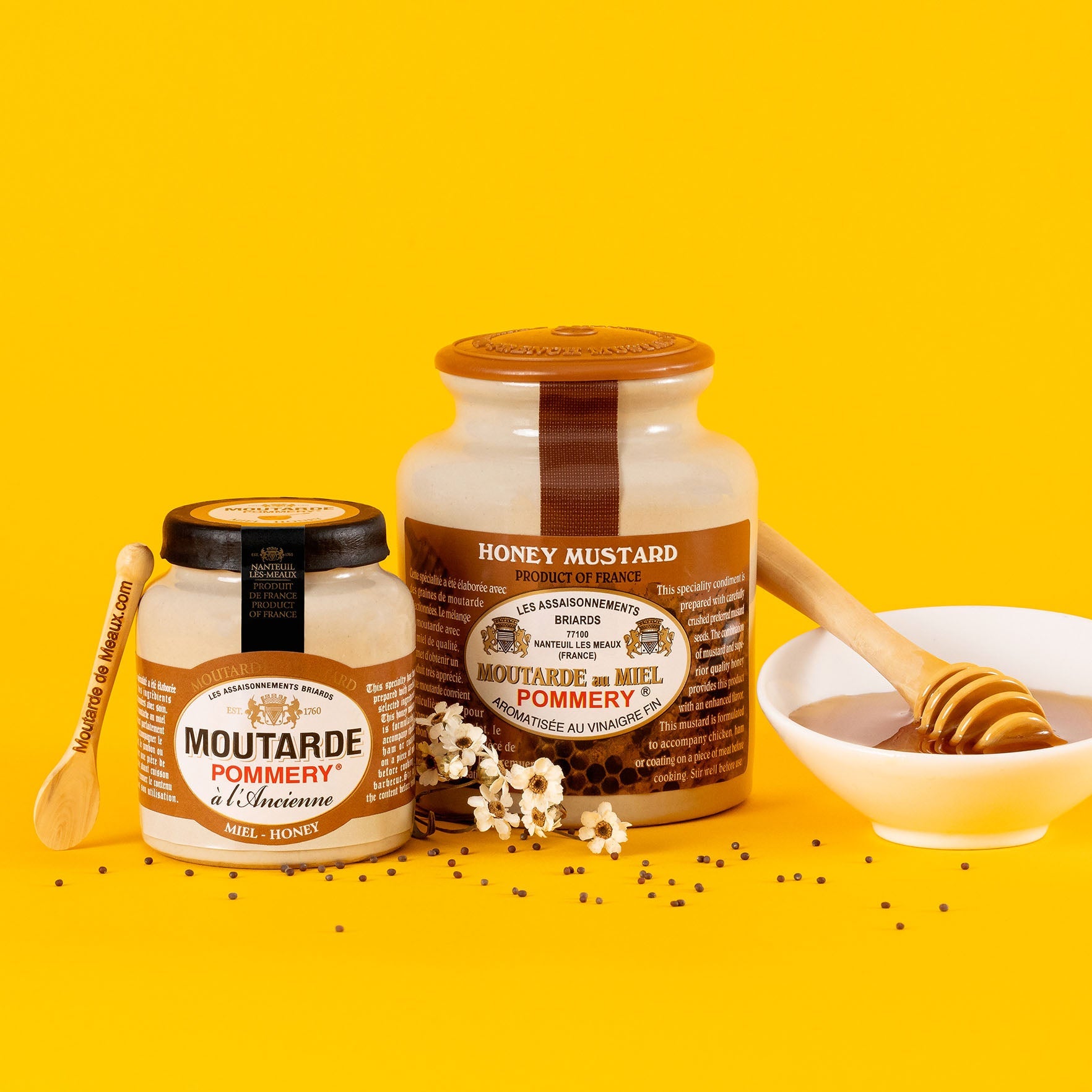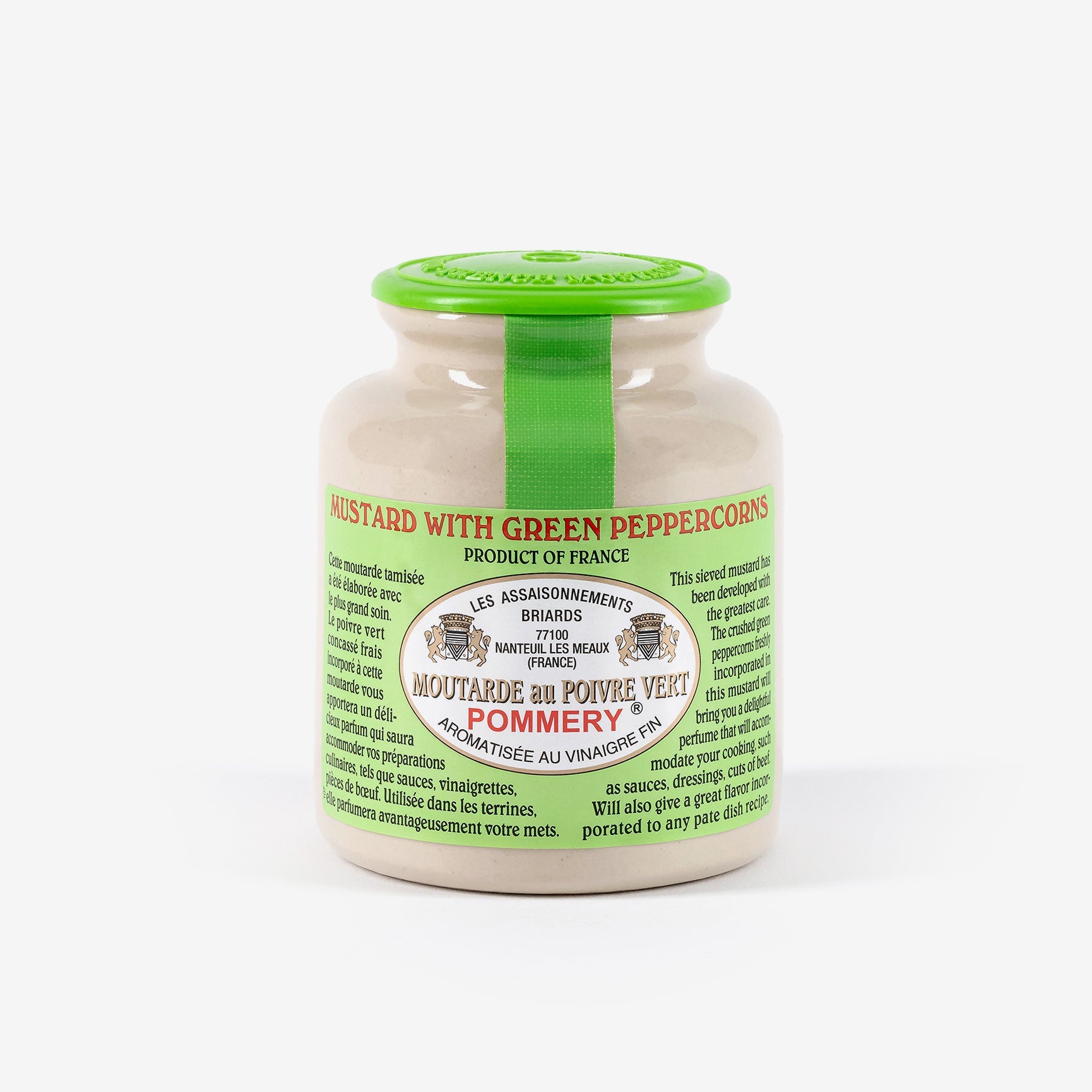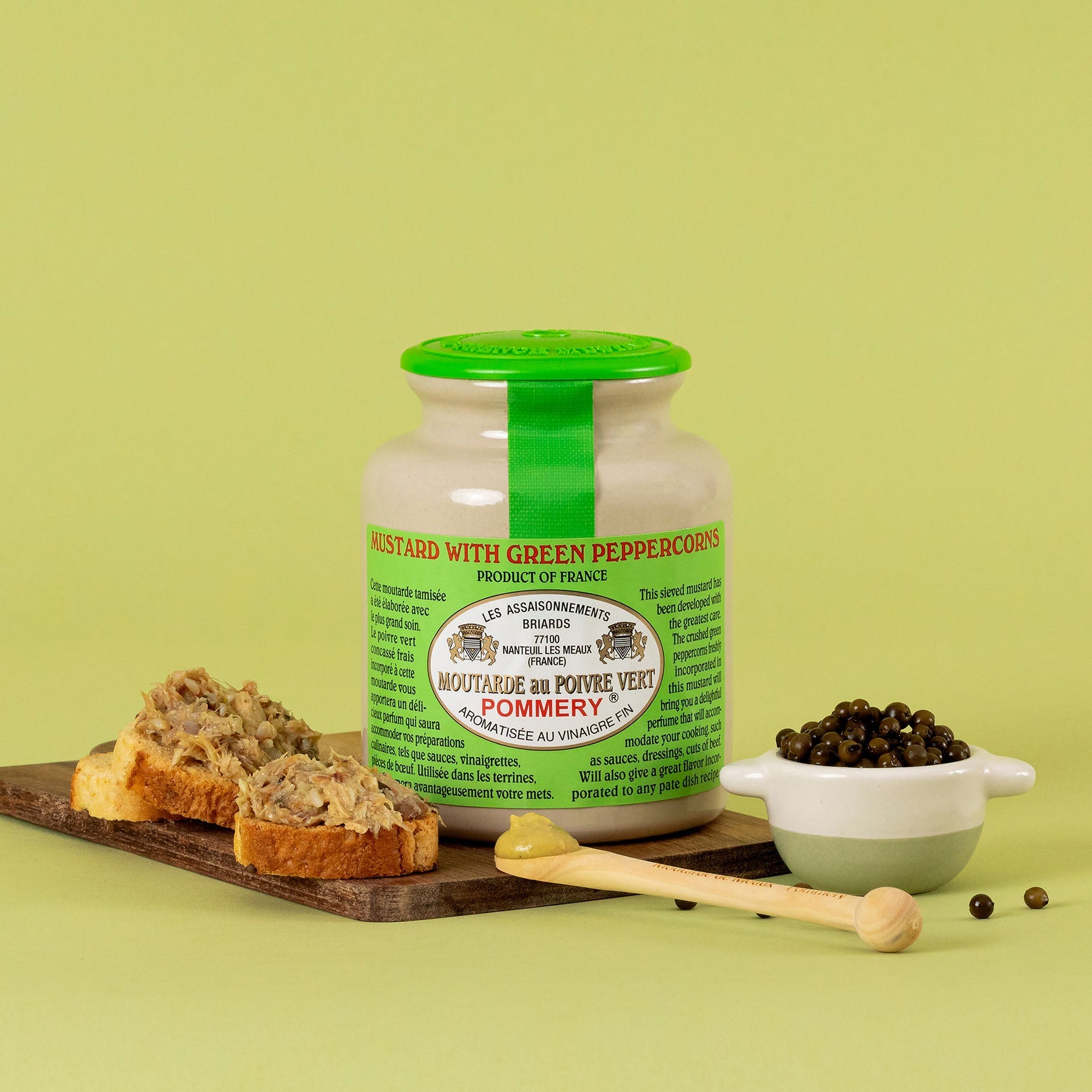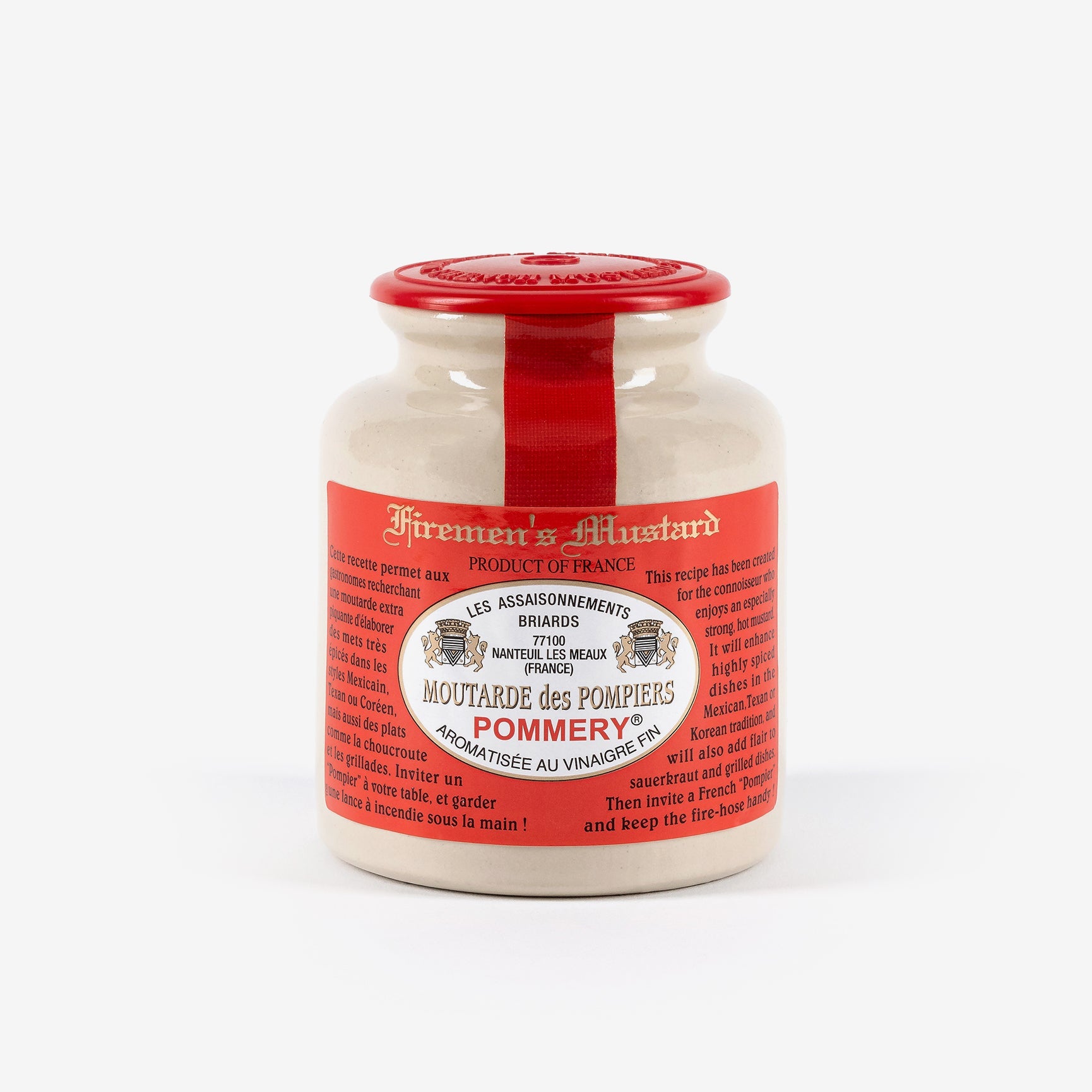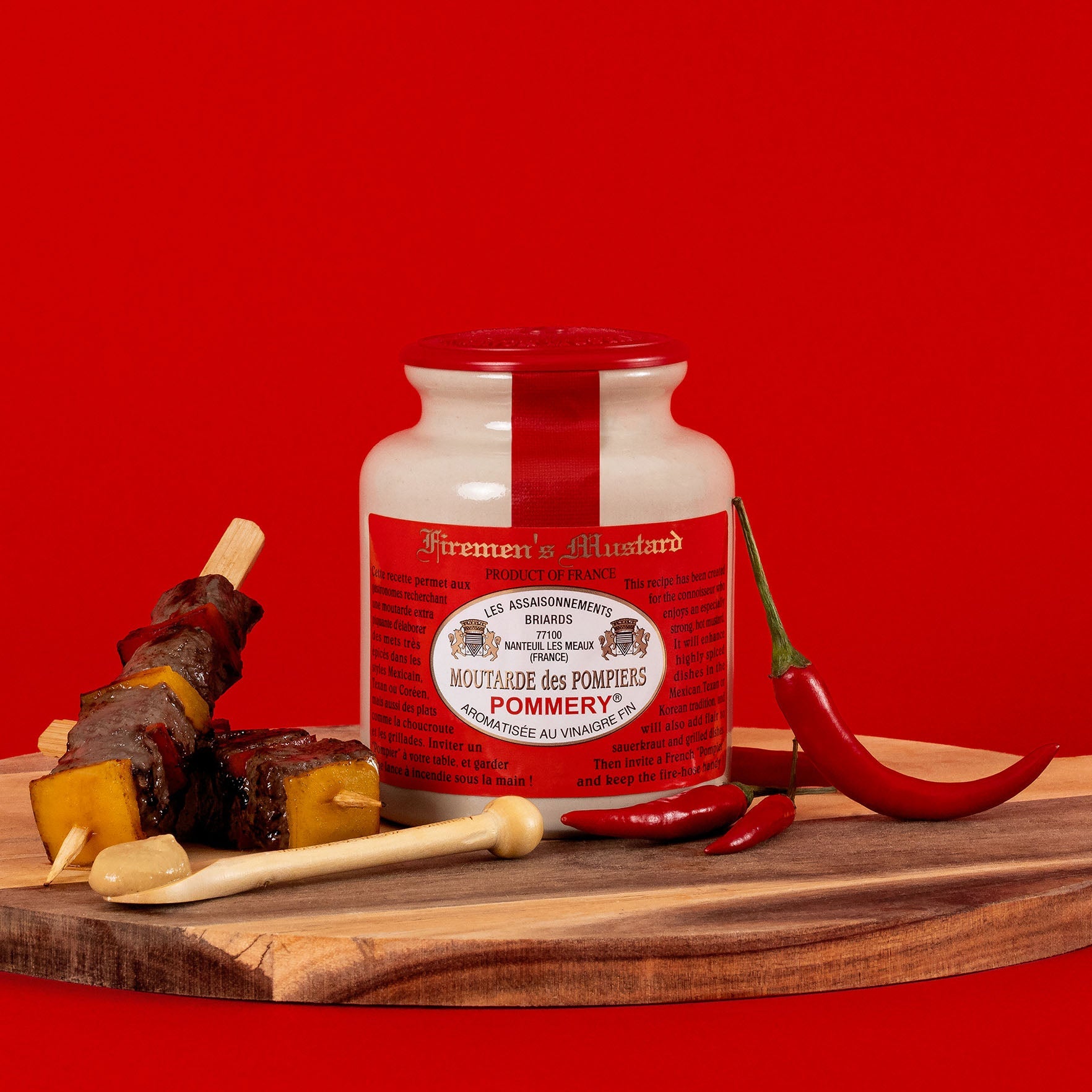The history of mustard: medieval origins
From the 4th century onwards, the town of Meaux became the seat of a bishopric and later the capital of the Brie region. The first links between monks and mustard date back to Charlemagne. Charlemagne asked the monks to grow mustard in the bishoprics. He also protected the mills owned by the monks, as well as the quarries, which led to battles between various congregations of clergymen (notably the priory of Reuil, which owned the millstone quarries in the area and had to compete with the abbesses of St Benoît (Benedictine) or the nuns of La Ferté-sous-Jouarre with the Chanoines du Chapitre).
The roots of Moutarde de Meaux lie in the expertise of the Chanoines de la Cathédrale Saint-Étienne. These monks developed a unique know-how, using mustard seeds grown in the region. They established the first manufacturing methods and began to pass on their know-how.
The golden age (18th century)
The reputation of Meaux mustard really took off in the 18th century, particularly under the reign of Louis XIV. The master mustard-makers of Meaux were granted royal privileges, confirming the excellence of their production.
Commercial development
1. Creation of the first production companies
2. Export to European courts
3. Official royal recognition
4. Establishment of quality standards
The Pommery era
The modern history of Meaux mustard is inextricably linked to the Pommery family, who took up the torch in the 19th century.
Les Vinaigreries du Lion, founded in Lagny-sur-Marne in 1865 by Mr Mathon, passed into the hands of the Chamois family in 1890. It produced a quality vinegar based on white alcohol. The vinegar factory produced and supplied the vinegar used in the preparation of Pommery® Moutarde de Meaux® for many decades. It was therefore only natural that our company should take over the manufacture of Pommery® Moutarde de Meaux.
In the 18th century, the consumption of mustard was very high, as it was used to erase the taste of foods that were not always the freshest. As early as 1771, we were able to identify mustard makers in Meaux who had taken over from the Chanoines, on a scale that was already industrialized for the time. J.B. Pommery operated a millstone quarry alongside his mustard business. The secret of Moutarde de Meaux ® had been passed down to him from the Chanoines. In 1890, the Pommery family remained the only ones making mustard.
Moutarde de Meaux® today
In 1925, production left the family to enter an era of modern production.
Today, Pommery® Moutarde de Meaux® has kept the same recipe as in the past, its ingredients carefully selected for their qualities. This gives the product a quality that many have tried to copy. The quality of the stoneware used, one of the most natural of materials, and of the natural, non-agglomerated cork stopper, means that it can be preserved and travel in all directions across our planet.
Modern production
- Compliance with current standards
- Maintaining traditional quality
- Controlled innovation
- International distribution
Contemporary challenges
- Supply of raw materials
- International competition
- Adapting to new standards
- Preserving know-how
In gastronomy
Pommery® Moutarde de Meaux® has become a benchmark ingredient. It is a symbol of culinary excellence and innovation, and can be found in all great kitchens. It enjoys national and international recognition and is part of gastronomic tourism.
Pommery® innovations
- New varieties
- Improved preservation techniques
- Extended range (flavored mustards, vinegars, etc.)
Heritage and traditions
Preserved know-how
- Traditional grinding methods
- Careful selection of ingredients
- Respect for maturation times
- Strict quality control
Transmission
1. Training of craftsmen
2. Process documentation
3. Maintenance of standards
4. Protection of manufacturing secrets
Today, the Moutarderie Pommery® innovates with new recipes, offering new ranges of mustards, more aromatic or original, always respecting tradition, know-how and responsible production methods.
Conclusion
The history of Moutarde de Meaux® illustrates the durability of a traditional know-how that has been able to adapt to modern demands while preserving its authenticity. This ability to evolve, while maintaining exceptional quality, explains its unique place in France's gastronomic heritage. Find out more about the history of Assaisonnements Briards.








